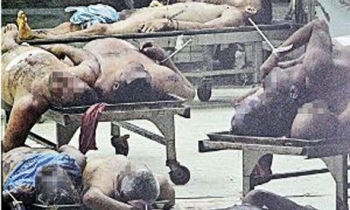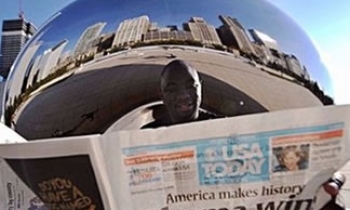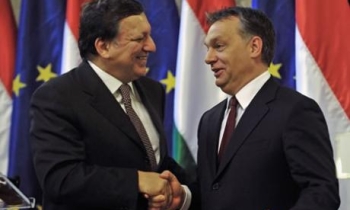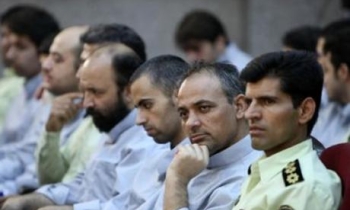ABUJA (Reuters) - A Nigerian court charged two journalists with sedition on Tuesday over stories critical of a new presidential jet, in what one of the men's employers called an assault on democracy in Africa's most populous nation.
Gbenga Arulegba, presenter of a political show on African Independent Television (AIT), and Rotimi Durojaiye of the Daily Independent newspaper, risk two years in jail if convicted.
"It is democracy that is on trial. Reporters must be granted opportunity to discharge their duties," said Raymond Dokpesi, chairman of AIT's parent company DAAR Communications which is also charged with sedition.
Moves against media houses have increased in frequency in the past few months and government opponents accuse it of cracking down on critics ahead of next year's elections.
Durojaiye stands accused over an article entitled "Controversy over age, cost of presidential jet" published on June 12, while Arulegba is in trouble for discussing the content of the article on his "Focus Nigeria" show the following day.
The six-count charge sheet said this showed "intent to bring into hatred or contempt or excite disaffection against the person of the President or the Government of the Federation".
The New York-based Committee to Protect Journalists has protested about the case.
"It's outrageous that political commentary would result in a journalist being thrown in jail," said Ann Cooper, the group's executive director.
President Olusegun Obasanjo's new jet has been the subject of controversy in recent weeks. Newspapers have published numerous articles speculating about how much it cost, how old it was and whether it was needed.
Press freedom is generally better in Nigeria than in many other African countries and newspapers regularly criticise the government in vitriolic editorials.
However, the State Security Services, a secret police force, has detained a number of journalists without reason and it is listed as a "predator of press freedom" by another journalists' rights group, Reporters Without Borders.
The political climate is tense in Nigeria ahead of next year's elections which should see Obasanjo hand over to another elected president -- the first such transition since Nigeria's independence from Britain in 1960.
A powerful campaign to rewrite the constitution to allow Obasanjo to stand for a third term dominated the political debate for a year until the Senate defeated it in May.
The shockwaves from the end of the campaign are still reverberating across Nigeria and power struggles are building up as other candidates seek to emerge now the coast is clear.









